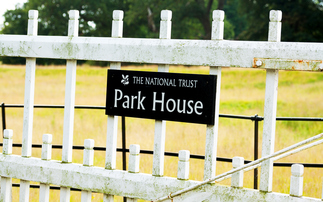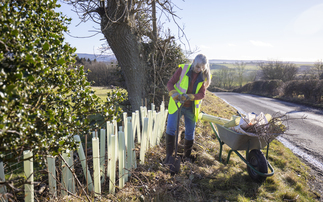Policy Exchange's Guy Newey argues "natural capital" mechanisms could offer a better means of protecting natural habitats than the status quo
Nobody in the environmental movement puts an argument with such deft force as George Monbiot. So his recent invective against what is broadly-termed 'natural capital valuation' perfectly targeted the weak spot of those of us who argue that biodiversity offsetting and other natural capital weaponry will be a useful way of improving the natural environment. Monbiot argues that by using the language of finance and accounting in efforts to protect nature, you frame the argument in such a way that you are implying that nature "possesses no inherent value: that it is worthy of protection only when it performs services for us; that it is replaceable".
This is a powerful argument, and one that I have grappled with since I was first introduced to the idea by Pavan Sukhdev, in a brilliant lecture at the Natural History Museum in 2009. But I think Monbiot has, in attacking the framing language of natural capital, chosen the wrong target. Let me try and explain why.
Since 1945, our approach to conservation in the UK has essentially been to identify our most important wildlife sites, draw rings around them and stop almost all development in them. Some protection is weaker than others (for example, for many Local Wildlife Sites), some of it is pointless from a biodiversity point of view (much of the Green Belts). So, in roughly a third of England you cannot build something new without getting into a fight (though damaging agricultural practices are another matter).
These protected ghettos are complemented by trying to rig the planning system so that when we do allow new housing or wind turbines, the damage to the natural environment is compensated for either through a bit of on-site or off-site improvements. Create a new newt pond, that kind of thing. We also subsidise farmers to make sure the land they operate is more welcoming to wildlife than it would be if it was just managed to maximise farm incomes.
By most measures, this approach is not really working. Set aside the fact we are not building enough homes, much of the UK's important wildlife and habitats is declining at a rapid rate. As Sir John Lawton said, we need bigger, better connected sites.
Part of the reason for this failure is because the planning bit is not really working for biodiversity at all (or at least, if it is, there is not much evidence of it). Big projects tend to be OK (e.g. the Abberton Reservoir scheme), but local projects are often poorly delivered and rarely monitored. Think old mattress dumped in that new newt pond. Simply put, planners and councillors do not pay enough attention. Part of the reason is because appeals to the intrinsic value of nature that Monbiot and others champion, only goes so far. Moreover, if you fail to put any monetary value on conservation, the default is zero, making it easy to ignore.
Planning is the area in which natural capital approaches are focused - most controversially through biodiversity offsetting. The language is admittedly horrific: ecosystem services, natural capital, offsetting, biodiversity metrics. It makes you want to find your nearest SSSI and start pouring concrete. But such understandable revulsion misunderstands that the wonder and poetry of nature, which Monbiot rightly celebrates, creates the imperative to protect our wildlife. Policy, with all its polysyllabic, soulless legalese, creates the means to achieve that end.
And let's face it, the current language of environmental protection through the planning system is hardly inspiring. Rather unusually, I have sat through university lectures on both poetry and environmental impact assessments. Planning Policy Statement 9 is an important document. Gerard Manley Hopkins it ain't.
Most of the people I know in favour of biodiversity offsetting are committed to protecting the natural environment, but are disillusioned with the current approach. Some of the most vocal opponents are those getting a free ride through the current system. At a Defra meeting last year, one of the house builders trade associations reps said they were "supportive" of the principles, "as long as it is not a new tax on development". Dieter Helm hit back wonderfully. This is not a tax, he replied, adding it was compensation for the damage that development does to the natural environment. The current planning system is meant to provide that compensation, but it is often simply not doing so at the moment, as our research has shown. If the system is set up properly, then that compensation can be used to create the kind of improvements to habitats that Lawton called for.
That does not mean that all of the UK should be a free for all. The most important places for wildlife should only allow development in the most pressing of circumstances, and in lots of them it should simply be prohibited. But natural capital valuation should push us towards meeting our housing crisis in the areas that are least important for wildlife. We can then use the compensation to improve current conservation sites in the UK. Who knows, it could even fund a rewilded national park?
Guy Newey is head of environment and energy at Policy Exchange







